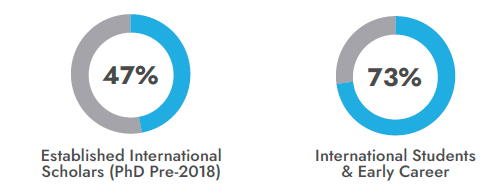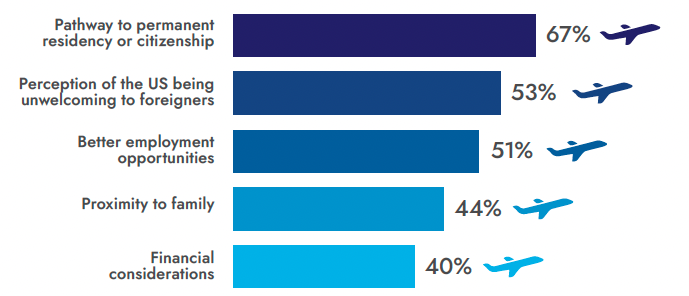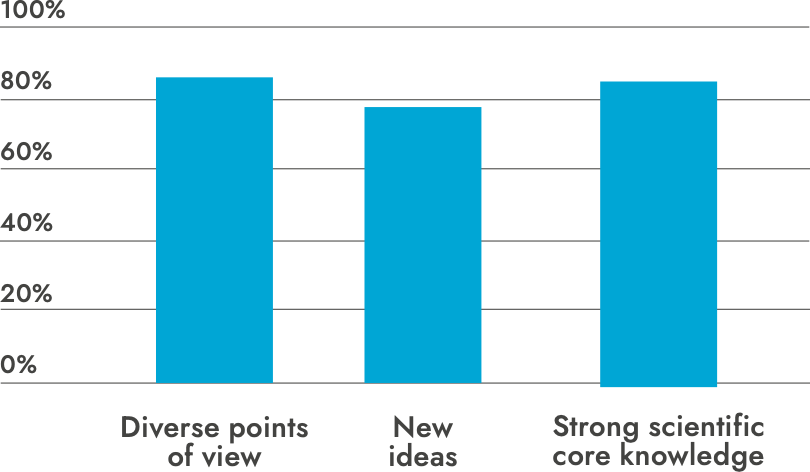International STEM Students: Key to American Innovation
Members of Congress should co-sponsor and pass the bipartisan, bicameral Keep STEM Talent Act, which would make the United States a destination of choice for international STEM students.
International Students Benefit U.S. Economy
- Even amid the pandemic, international students contributed nearly $28.4 billion to the U.S. economy and supported more than 300,000 jobs during the 2020-21 academic year.
- As of 2022, one-quarter of the billion-dollar startup companies in the U.S. have a founder who first came to America as an international student.
U.S. Losing Ability to Attract Global Talent
Current students and early career researchers are more likely to consider leaving the U.S. than those who got their PhDs earlier.

Students and researchers considering, or have considered, pursuing a career in a country other than the U.S.
Reported Factors in Considering Pursuing a Career in a Country Other Than the U.S.
Percentage of respondents that chose the following options

Results from Fall 2022 APS survey of more than 200 international physics graduate students currently in the U.S. and early career professionals, i.e., APS members who are PhD graduates with fewer than five years of experience, who are working in the United States, and are holding or have held U.S. visas.
International Students Benefit U.S. Science
Key Contributions of International Students and Scholars, According to American Physicists

The “Keep Stem Talent Act” Puts Us on the Right Track
Competition for top international students is growing. To encourage the best and brightest students to remain in the U.S. and contribute their skills to our scientific enterprise, the Keep STEM Talent Act would:
- Authorize declaration of dual intent: International students pursuing advanced STEM degrees in the U.S. could legally declare their plan to stay and pursue careers here post-graduation.
- Exempt from green card caps: International students, along with their spouses and children, would be exempt from green card caps when they earn an advanced STEM degree from an accredited U.S. institution and receive an offer of employment from a U.S. company.
- Standardize the vetting process: International students already in the U.S. on a student visa for an undergraduate program would undergo the same strengthened vetting at USCIS that the State Department currently performs for prospective advanced STEM degree students applying for a student visa from outside of the U.S.